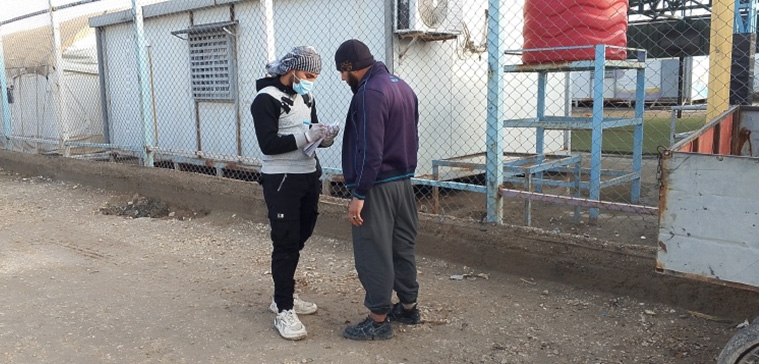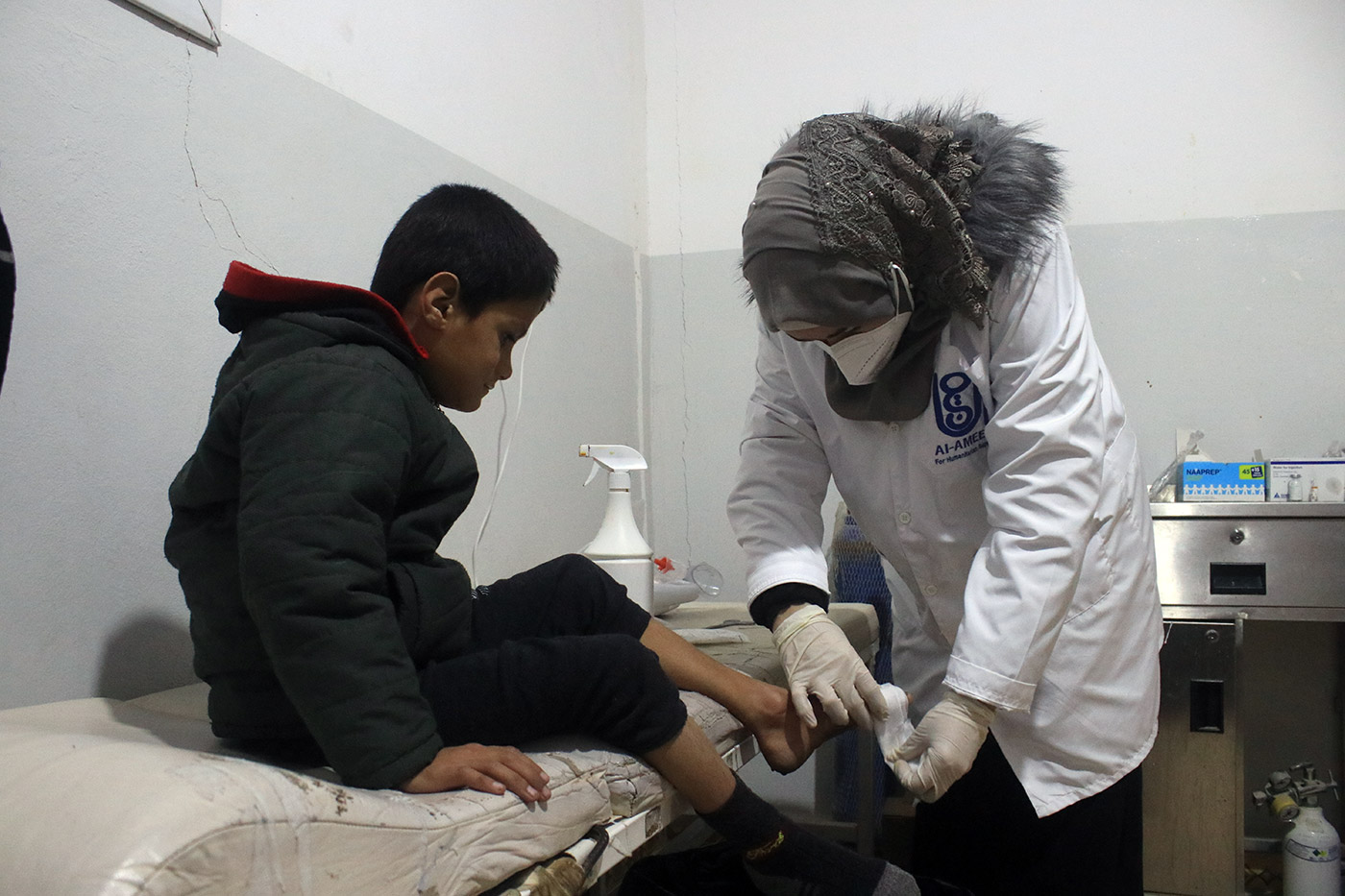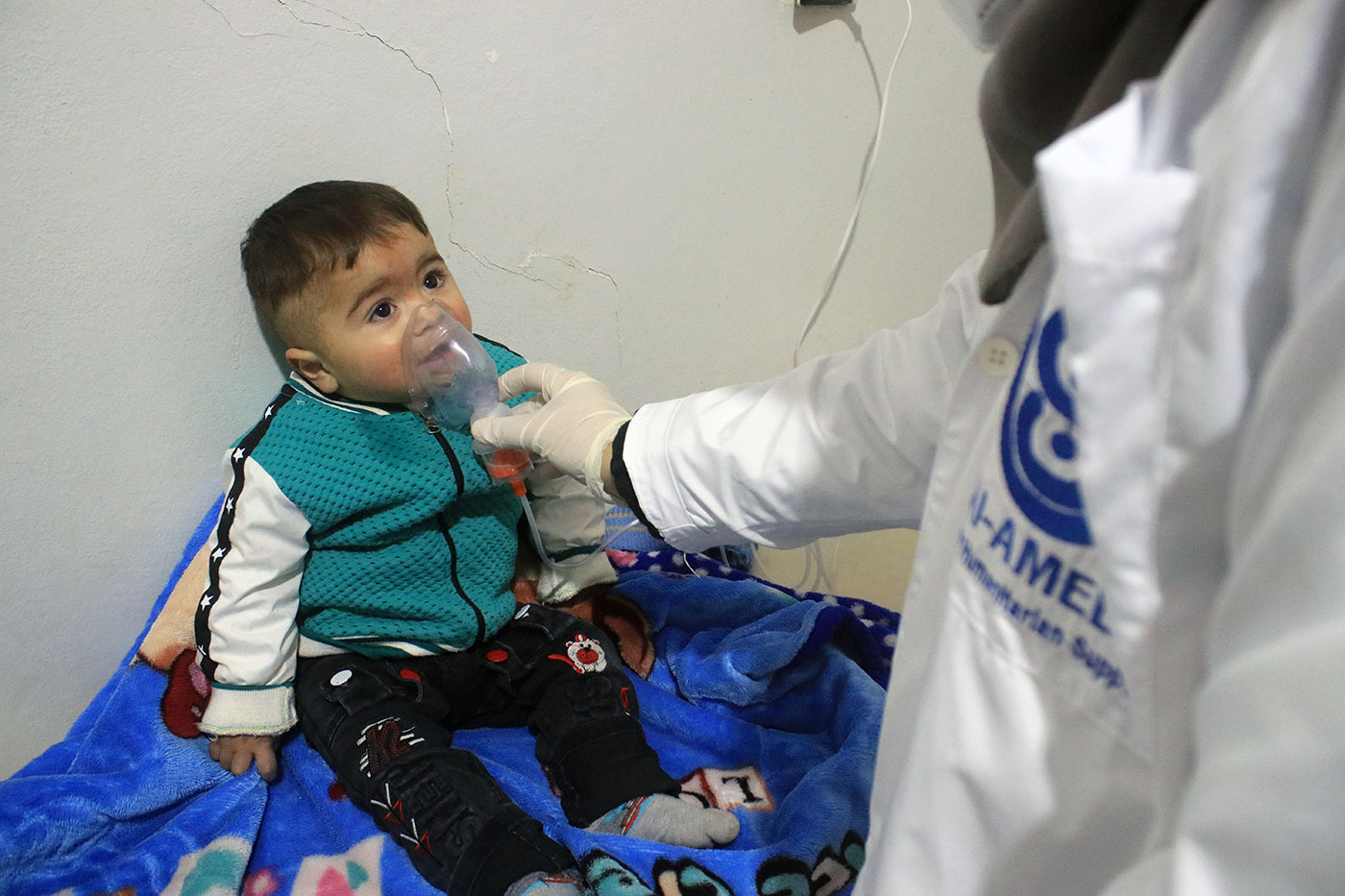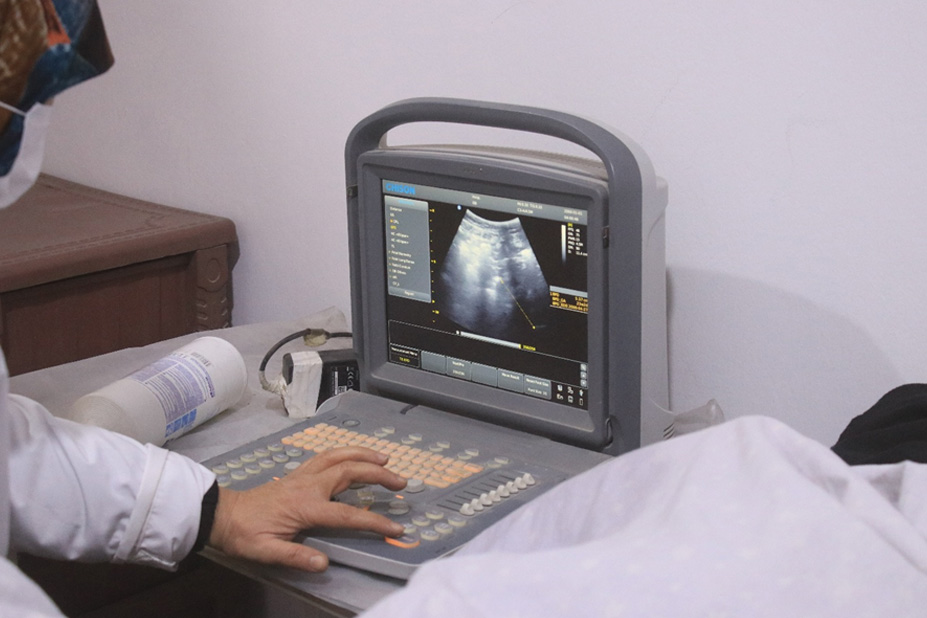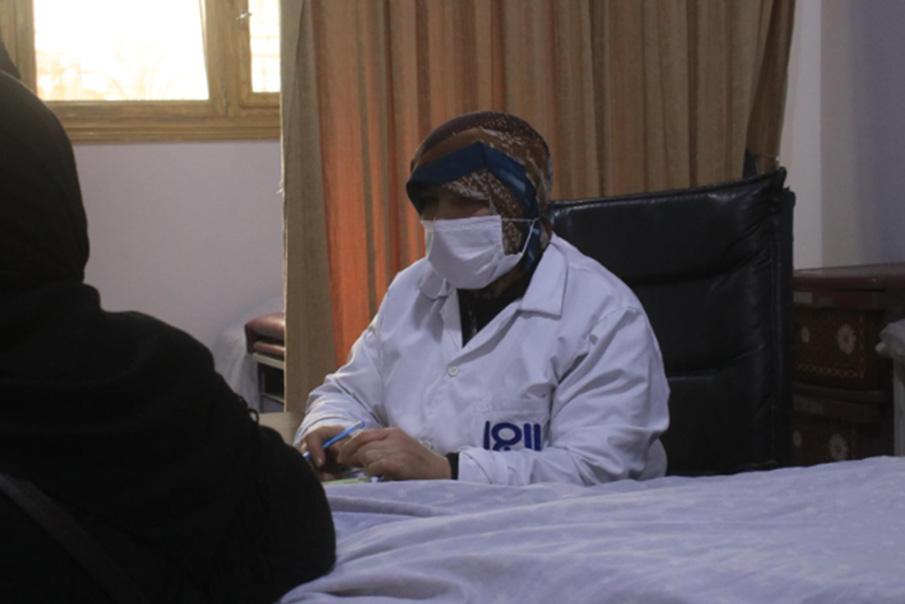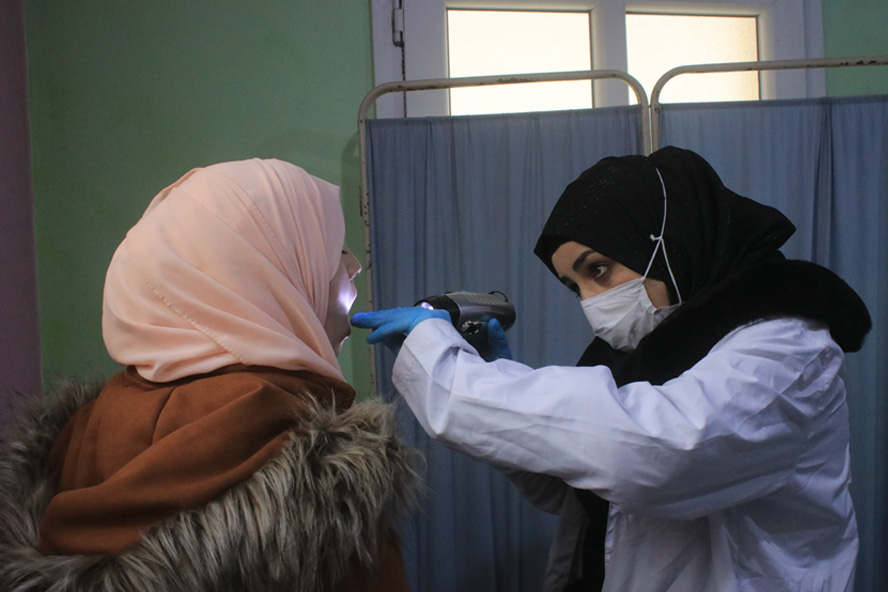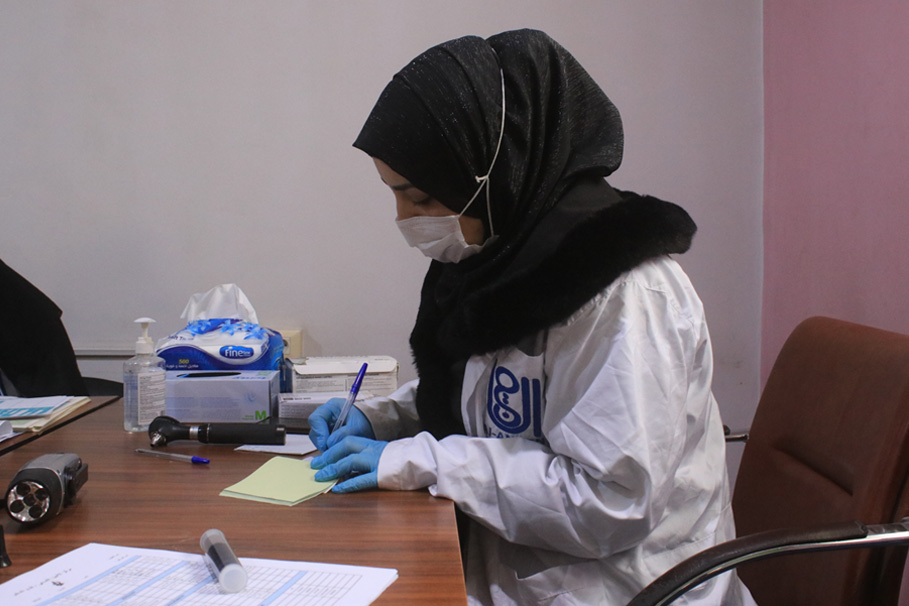15 March 2025, Damascus, Syrian Arab Republic – During 14 years of conflict, Syria’s health workers served tirelessly on the frontlines, braving airstrikes to deliver babies, rescuing the wounded from rubble and keeping hospitals functioning.
With Syria now at a hopeful crossroads, their voices tell a story of resilience, but also of a health system under immense strain. As Syria moves forward, ensuring a functioning health system with trained, equipped and supported health workers will be critical for long-term recovery and stability.
“We must not wait for stability to return. We must shape it.” – Khawla Al-Najjar, midwife, Aleppo
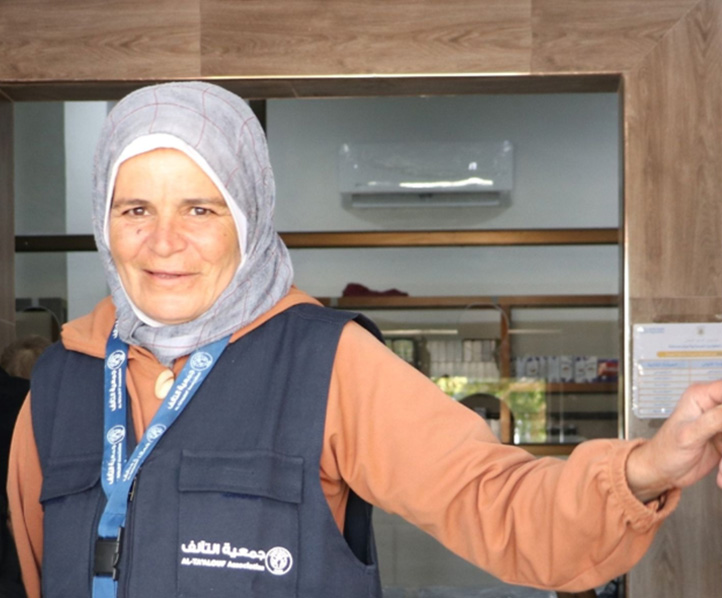 Photo credit: WHOIn Aleppo, midwife Khawla has delivered babies in the darkest moments of Syria’s crisis.
Photo credit: WHOIn Aleppo, midwife Khawla has delivered babies in the darkest moments of Syria’s crisis.
“I used to walk more than four hours under fire, moving from one village to another, knowing I was the only health provider for safe deliveries. I never knew if I'd return to my family, but it never stopped me. Seeing a newborn healthy and safe motivated me to keep going," Khawla says.
Like so many others, Khawla has endured profound hardships, yet she remains unwavering in her belief that Syria can heal. “Mothers trusted me with their lives – I couldn’t let fear stop me.”
“We are exhausted from the conflict, but ready to rebuild.” – Dr Firas Mustafa Shash, surgeon, Aleppo
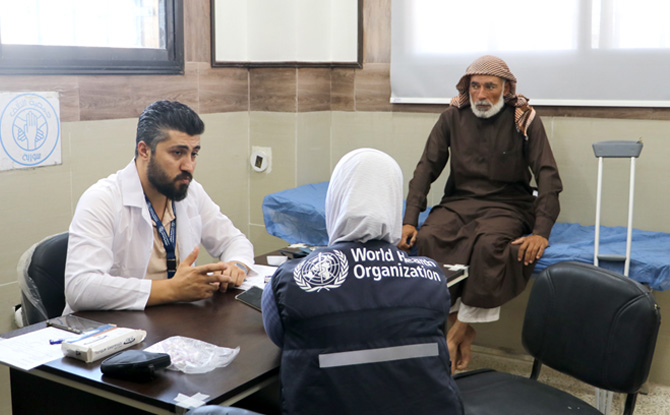 Photo credit: WHODr Firas Mustafa Shash, a general surgeon at the Al-Taalouf Charity Association clinic in rural Aleppo and a resident doctor at Al-Razi Hospital in Aleppo City, describes the immense pressures healthcare workers face.
Photo credit: WHODr Firas Mustafa Shash, a general surgeon at the Al-Taalouf Charity Association clinic in rural Aleppo and a resident doctor at Al-Razi Hospital in Aleppo City, describes the immense pressures healthcare workers face.
“Most hospitals here struggle to function, keeping us in constant crisis mode. Every day brings impossible decisions – patients needing intensive care but lacking enough beds.”
In rural Aleppo, Dr Firas sees 20 to 40 patients daily, many elderly, children, or displaced. With the nearest fully equipped hospital over 110 kilometers away, accessing timely care is challenging.
Yet Dr Firas remains hopeful. “Every patient treated brings Syria closer to healing. If we rebuild hospitals, restore medical training, and invest in healthcare workers, we can revive Syria’s health system.”
“No training prepared me for the heartbreak I’ve endured.” – Hala, nurse, Hama
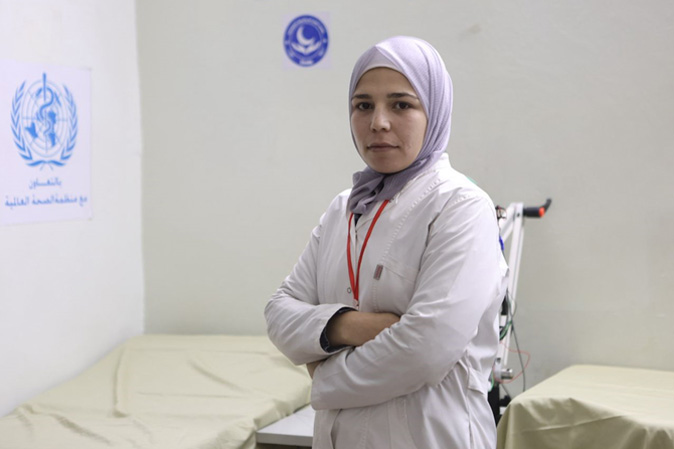 Photo credit: WHOIn Hama, nurse Hala from Al-Birr and Social Services Association remembers her most painful moment.
Photo credit: WHOIn Hama, nurse Hala from Al-Birr and Social Services Association remembers her most painful moment.
“One day, in the middle of a routine procedure, I saw my friend wheeled into the clinic, paralyzed from a missile strike. That moment shattered me.”
Despite daily hardships, Hala continues her work, often staying beyond her shift to compensate for staff shortages. “Our hospital lacks essential equipment and often runs out of basic medicines, making our jobs harder.”
“I dream of a health system where no patient is left waiting and impossible decisions aren't necessary – where patients receive care without fearing tomorrow's closures due to funding shortages,” she adds.
Keeping humanitarian health services running and supporting health workers who carry out this life-saving care are essential as Syria moves toward recovery. A well-planned transition will ensure lifesaving care continues while rebuilding begins. Given ongoing fragility, interruptions in humanitarian aid could worsen vulnerabilities, leaving even more people without care.
“I hope to see more women involved in rebuilding Syria’s healthcare.” – Abeer Al-Suwaid, physiotherapist, Sarmada, Idlib
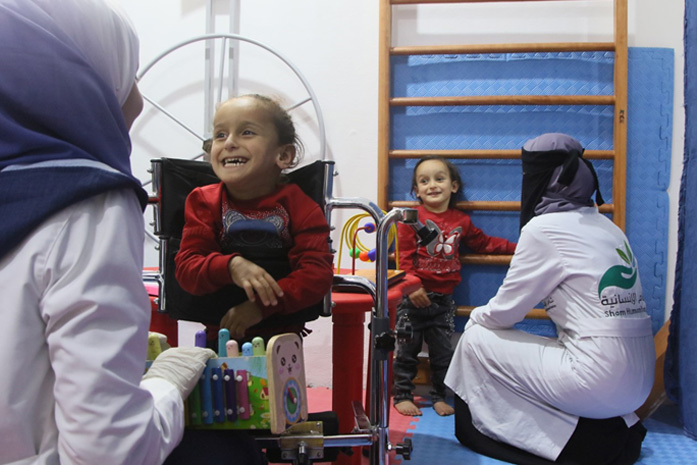 Photo credit: WHOAt Sham Children’s Hospital in Sarmada, Abeer helps young patients regain mobility.
Photo credit: WHOAt Sham Children’s Hospital in Sarmada, Abeer helps young patients regain mobility.
“I helped a child take her first steps after surgery despite intense pain," Abeer recalls. "Women health workers often provide special attention and care, especially comforting to children.”
Hospitals like Abeer's provide care without patient fees thanks to donor support, but without sustained funding, these critical services could disappear.
“Investing in health workers, especially women who bring unique perspectives, is key for recovery,” says Abeer.
“The hardest days are when our patients' needs are unmet.” – Dr Wedad Alrasheed, physician, Al-Bab, Aleppo
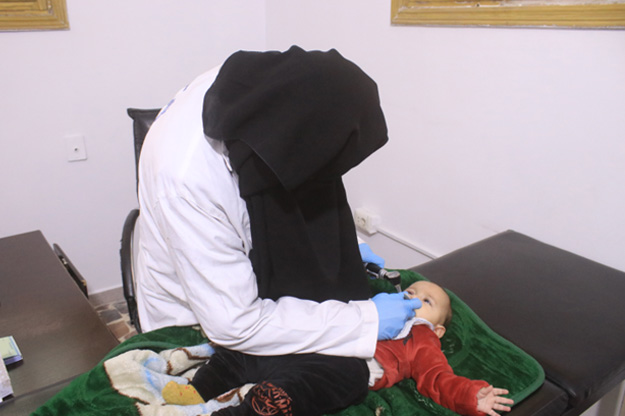 Photo credit: WHOIn Al-Bab, Aleppo, Dr Wedad examines a child who suffers from a severe ear infection and breathing difficulties. Meanwhile, the waiting room is filled with patients waiting anxiously. Like many colleagues, Dr Wedad often works long hours, feeling the heavy weight of the workload.
Photo credit: WHOIn Al-Bab, Aleppo, Dr Wedad examines a child who suffers from a severe ear infection and breathing difficulties. Meanwhile, the waiting room is filled with patients waiting anxiously. Like many colleagues, Dr Wedad often works long hours, feeling the heavy weight of the workload.
Years of persistent underfunding have stripped resources, forcing many doctors to work unpaid, underpaid, or voluntarily.
“I envision a future where investment in education and training strengthens Syria’s health system, allowing doctors and nurses to return,” says Dr Wedad.
“A patient’s smile keeps us going.” – Intisar Al-Muhaimid, nurse, Deir ez-Zor
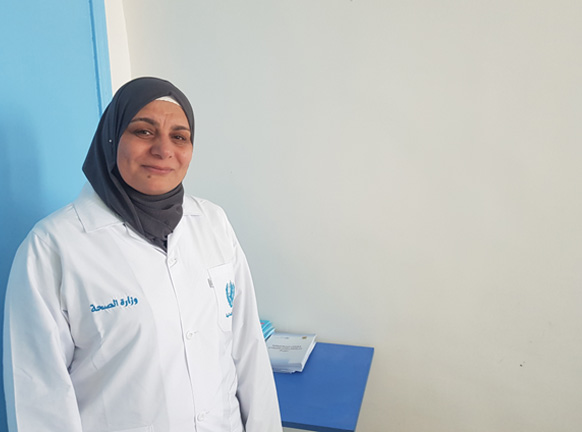 Photo credit: WHOIn Deir ez-Zor, nurse Intisar Al-Muhaimid has served tirelessly for 29 years, including at Al-Furat Hospital. Throughout the conflict, Intisar and colleagues have fought outbreaks of infectious diseases threatening already vulnerable communities.
Photo credit: WHOIn Deir ez-Zor, nurse Intisar Al-Muhaimid has served tirelessly for 29 years, including at Al-Furat Hospital. Throughout the conflict, Intisar and colleagues have fought outbreaks of infectious diseases threatening already vulnerable communities.
“Our work is about helping people,” Intisar says. “A patient's smile or a simple ‘thank you’ keeps us motivated.”
Intisar hopes Syrians who left will return to help rebuild the country. “I wish we expand our services, secure resources and have enough staff to provide quality care.”
More than half of Syria’s health facilities are non-functional, severely limiting access to essential care. Shortages of medical supplies, outdated equipment, and damaged infrastructure continue to strain services. While many hospitals and clinics operate at minimal capacity.
“We need to upgrade our skills to meet today’s challenges.” – Abeer Kdib, nurse, Deir ez-Zor
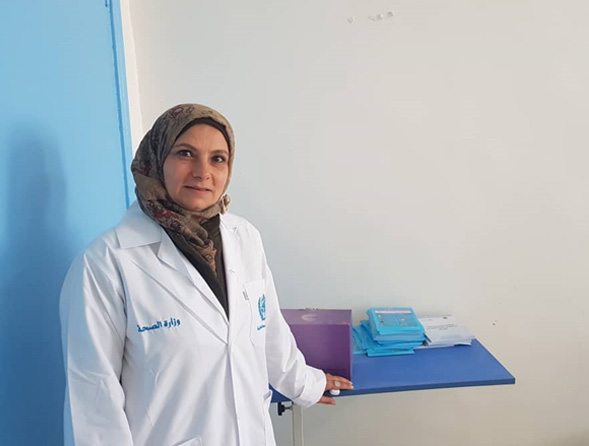 Photo credit: WHOAbeer Kdib, a nurse at the National Hospital in Deir ez-Zor for 27 years, frequently contends with misinformation complicating patient care.
Photo credit: WHOAbeer Kdib, a nurse at the National Hospital in Deir ez-Zor for 27 years, frequently contends with misinformation complicating patient care.
“Rumours spread quickly, causing confusion and fear,” she says. “We need more healthcare professionals trained to address emerging challenges like misinformation.”
Despite these difficulties, Abeer remains dedicated. “Seeing patients recover and smile as they leave the hospital is our greatest reward.”
“We need a new generation of skilled health professionals.” – Dr Noran Al Faran, physician, Hama
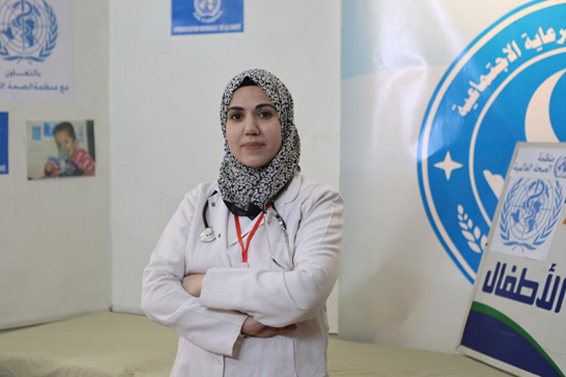 Photo credit: WHO“We’ve treated children who've lost entire families. We’ve saved lives only to see them return days later, injured again.”
Photo credit: WHO“We’ve treated children who've lost entire families. We’ve saved lives only to see them return days later, injured again.”
Dr Noran believes the future depends on strong medical education. “Rebuilding medical schools and hospitals, and ensuring the next generation has the right skills is essential.”
Between 50% to 70% of Syria’s health workforce has left the country, increasing pressure on the remaining workers. Investment in medical education programmes is needed to sustain emergency and routine services.
“I dream of a Syria where ambulances respond to accidents, not bombings.” – Borhan Jasem Kleeb, paramedic, Azaz
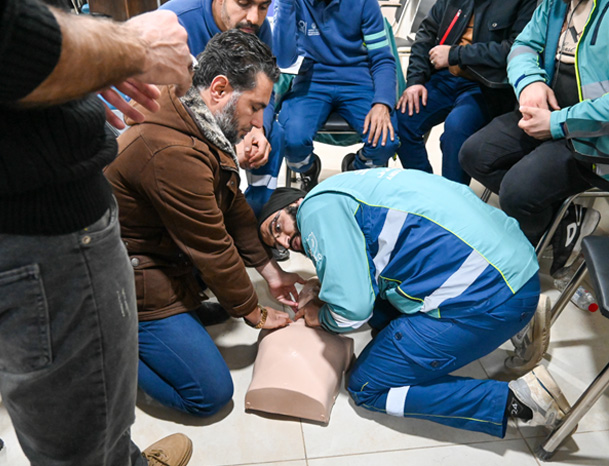 Photo credit: WHOBorhan remembers the day his ambulance was hit while responding to an airstrike in Homs in 2012. “That day made me realize I wanted to dedicate my life to helping others in emergencies.”
Photo credit: WHOBorhan remembers the day his ambulance was hit while responding to an airstrike in Homs in 2012. “That day made me realize I wanted to dedicate my life to helping others in emergencies.”
Borhan lost his entire family in the 2011–2014 siege of Homs. Married now, with 4 children, he continues to serve as a paramedic.
Rebuilding trust and ensuring sustainable health care requires more than resilience. It is crucial to strengthen leadership, management and funding. Effective governance ensures aid reaches where it is most needed, delivering long-term, reliable care.
“As our country shifts towards hopeful leadership, we – as Syrians – must take full responsibility for rebuilding our homeland,” says Borhan.
“Rebuilding is more than roads and buildings, it means a trusted health care system that protects people, bringing peace and stability.”





